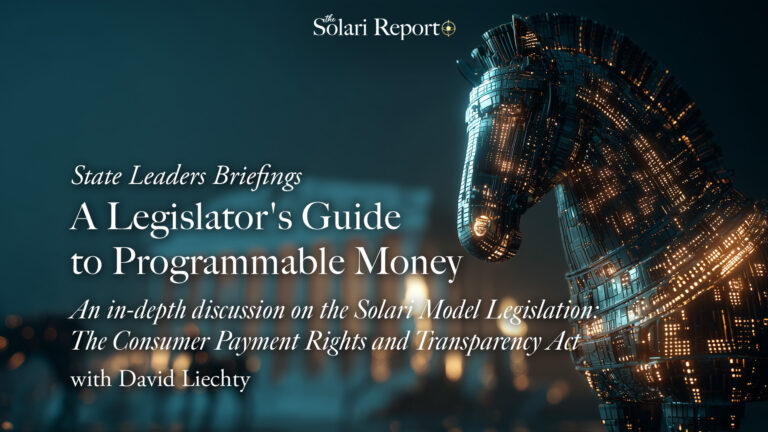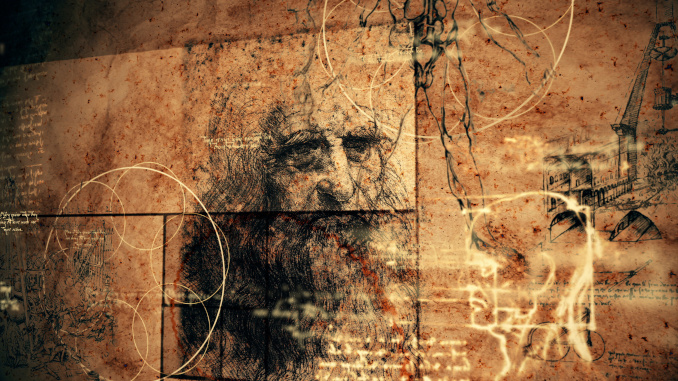“If imitation is the sincerest form of flattery, we’ve flattered reality enough. It doesn’t need any more. Reality needs a massive injection of imagination.” ~ Jon Rappoport
By Catherine Austin Fitts
This Sunday, Nina Heyn (author of Solari's Food for the Soul column), Robert Dupper (who leads audio, video, and graphics for The Solari Report), and Ulrike Granögger (who leads the Solari Future Science Series) will join me in Paris for a celebration of Leonardo da Vinci.
We will be visiting the Leonardo exhibit at the Louvre—one of the great museums of the world:
"The fifth centenary of the Italian master's death is therefore a unique opportunity for the Louvre to bring as many as possible of the fourteen to seventeen paintings now attributed to Leonardo, according to specialists, to join the five large paintings in the Paris museum. The exhibition will include a large selection of drawings and a small but significant group of paintings and sculptures that will provide some tangible context.
This international retrospective will present the latest research findings, critical editions of key documents and the results of the latest analysis carried out in laboratories or during recent conservation treatment by the Louvre."
Wherever you are, I hope you will plug in and draw inspiration from Leonardo and the many celebrations of his life and work during 2019.
Among other museums and exhibits in Paris, we will also visit the Atelier des Lumières.
https://youtube.com/watch?v=FIdW-KYax-c
Food for the Soul: Digital Art in Paris
To celebrate this occasion, I invited Jon Rappoport to join me to discuss Leonardo and the power of imagination. As Leonardo's work inspires us to learn and create, so Jon's work on imagination is a magnificent series of teachings to guide us on our way. Consider this interview a celebration of back-to-back heroes—Jon was the Solari Report Hero of the Year for 2018. Leonardo is our Hero of the Year for 2019.
For Let's Go to the Movies, check out Jon's outstanding speech at the Secret Space Program 2014. I was there—the audience was knocked out!
I will record my next Money & Markets in the first week of November from Hickory Valley. Then I head out on the road across the Mississippi river through the Western states to Portland for our Solari event on November 15th—and then back through Nevada and Texas for Thanksgiving. I am looking forward to seeing many subscribers along the way.
Please email or post your questions and stories for Ask Catherine here.
Talk to you Thursday!
Related Reading:
Leonardo da Vinci on Wikipedia
Louvre on Wikipedia
Food for the Soul: Da Vinci and Salt
Food for the Soul: Sky Ladder, da Vinci, and Collecting Modern Art
Food for the Soul: The Year of da Vinci
Food for the Soul: Da Vinci Part 2 – Milan
Food for the Soul: The Year of da Vinci – Interview with a Milanese – Journalist Paola Jacobbi






















































































































Empowering discussion w Mr Rappoport !!
EXACTLY what to needed to hear …
If you go back and look at what Leonardo lived through and dealt with – we have it easy!
Empowering discussion w Mr Rappoport !!
EXACTLY what to needed to hear …
If you go back and look at what Leonardo lived through and dealt with – we have it easy!
Excellent discussion, thank you. Leonardo was an amazing human being. Besides his genius, his life also reminds me of the importance of having a supportive community to nurture and promote ideas, and the difference between intelligence and actionable intelligence as you Catherine so frequently talk about.
To think what would have happened if Leonardo’s genius had been brought into reality and widely implemented in his time. If large groups had worked together to bring his sketches into the world as working usable things. If his genius was given freedom to leave the privacy of his notebooks and be marginally improved and tinkered with by normal people. We may have had air flight centuries earlier.
It’s a reminder that even the greatest genius isn’t enough when it doesn’t get out into the world and inspire other people.
One of the things that I have learned from studying Leonardo’s life is the cost of persecution. He was persecuted early on and could have ended up in prison for many years or dead. The result was he went to great lengths to keep his work secret. Managing what intellectual capital flows and what does not flow is one of the great control points. Observing the costs of Leonardo’s secrecy reminds me of the costs of trying to protect yourself with secrecy. Put a genius in fear and it becomes much easier and cheaper to control that person’s work. And so small controlling minds made sure we delayed knowing how the human circulation system worked, even though Leonardo knew and had documented it.
Funding mechanisms for prototypes and publishing are essential.